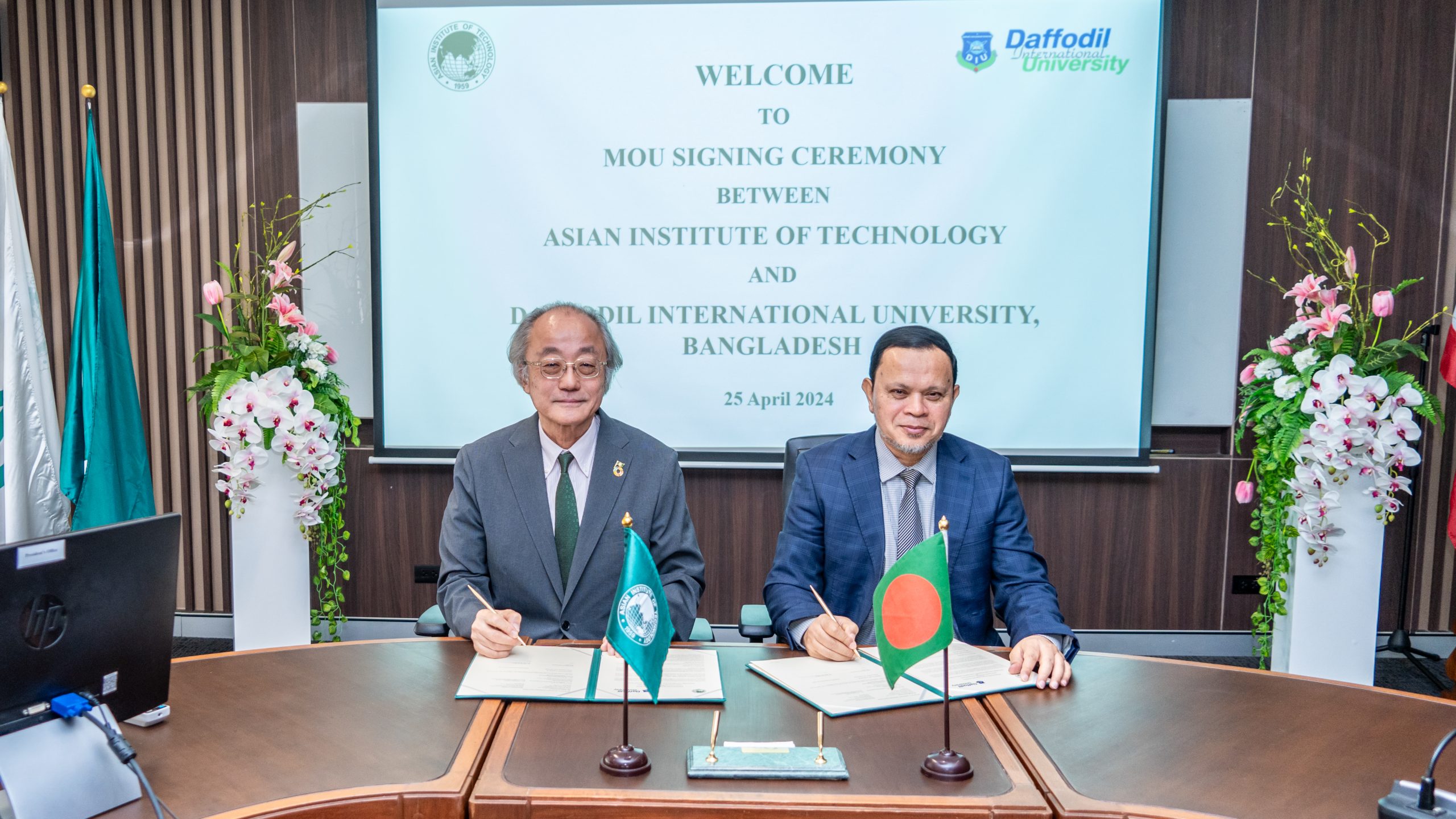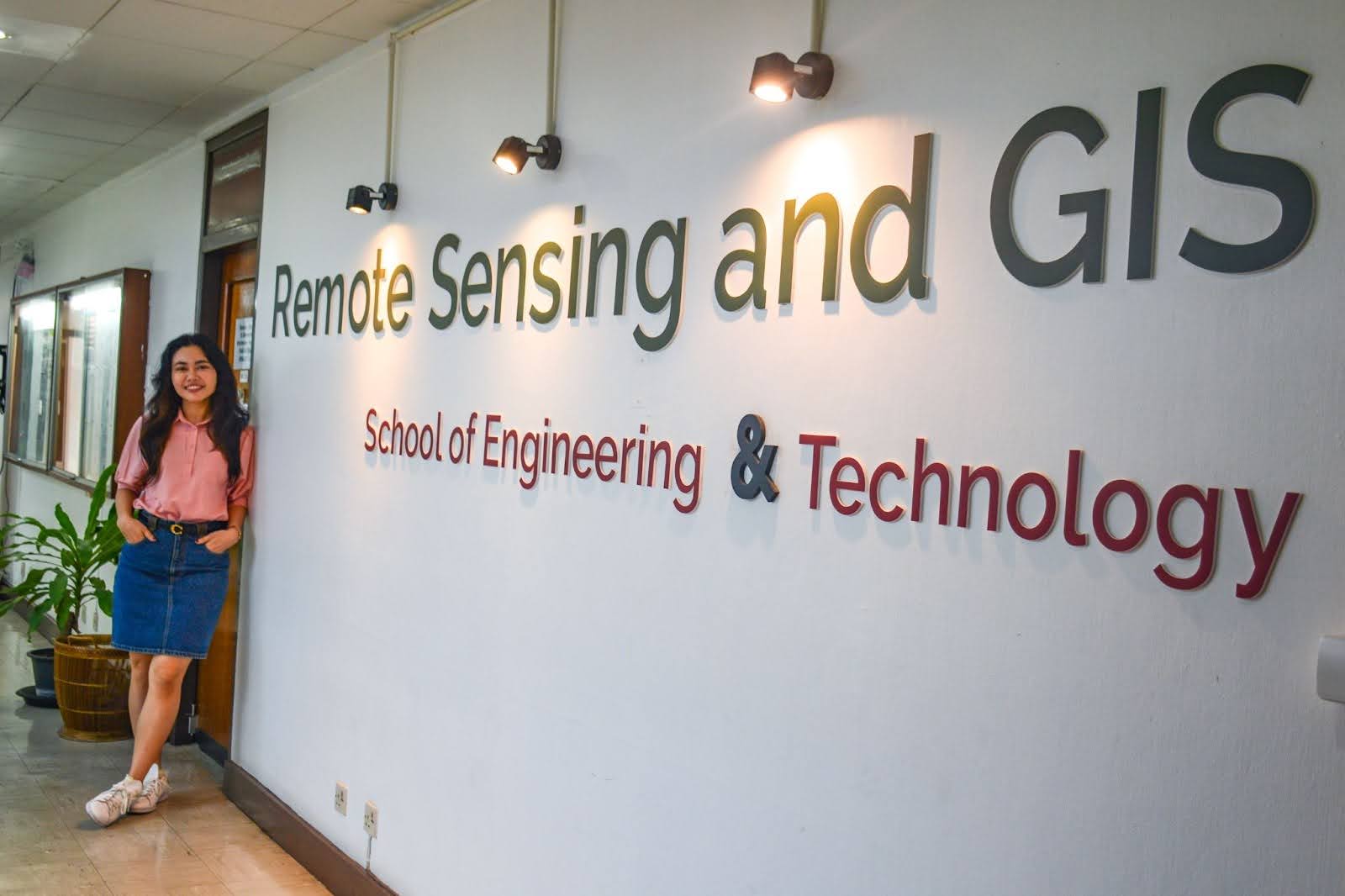By AIT Public Affairs
12 December 2023: The Asian Institute of Technology (AIT) and Family Health International (FHI 360), USA, renewed the Memorandum of Understanding (MoU) on 12 December 2023, aiming to foster collaboration in research, education, health, technology, and development within the Asia Pacific region. The partnership between the two institutions began in February 2018.

The primary objective of this MoU is to establish a framework for active cooperation between AIT and FHI 360. The scope of collaboration encompasses a wide array of areas, with both institutions committed to exploring opportunities that are mutually beneficial. This includes the development of joint proposals and concept notes aimed at resource mobilization. The collaboration extends to conducting joint applied research and innovation, utilizing big data and analytics for development. This involves the joint preparation of concept papers and proposals and the integration of big data and analytics methods into existing projects. The MoU facilitates the exchange of experts between both institutions. Furthermore, it opens avenues for providing internship opportunities for AIT students, allowing them to gain real-world experience. The collaboration will extend into various technical areas such as Health, Environment and Climate Change, Education, Civil Society Engagements, and others.
Prof. Kazuo Yamamoto, AIT President, said, “AIT envisions transformative change through our new School of Practice. Collaborating with FHI 360, we emphasize training and digitalization. FHI 360’s expertise in climate change and air pollution aligns with our commitment to a green campus and achieving net zero by 2030. Our shared goals in environmental initiatives, technology, mobile health, and leveraging satellite data reinforce a robust partnership. AIT, with its AI and technology centers, stands ready to provide crucial technical support for FHI’s impactful projects.”


Dr. Jacqueline McPherson, Regional Director, FHI 360, Asia Pacific said, “Looking ahead, FHI 360 envisions exciting collaborative prospects with AIT, spanning business opportunities, innovative development solutions, and the application of Artificial Intelligence. Together, we anticipate producing joint papers addressing critical issues such as air pollution, plastic pollution, and climate-smart healthcare, complemented by engaging joint events, round tables, and meetings focused on our shared areas of interest.”
Representatives from FHI 360, Asia Pacific, including Ms. Sutinee Charoenying, Portfolio Director, Ms. Nujpanit Narkpitaks, Associate Director of Environment and Climate Change, Ms. Piyamas Umasathien, Associate Director of Program Management Unit, and Ms. Srunya Nopsuwanwong, Regional Business Development Director, attended the signing event. AIT was represented by Prof. Sangam Shrestha, Dean of the School of Engineering and Technology and Co-Director of GWSC; Mr. Karma Rana, Institute Secretary; Mr. Shawn P. Kelly, Executive Director of the Office of International and Public Affairs (OIPA); Dr. Sumana Shrestha, Director of International Affairs, OIPA; Mr. Sanjeet Amatya, Director of Public Affairs, OIPA; and Ms. Sirima Sirimattayanan, Senior Program Officer, International Affairs, OIPA.
Family Health International (FHI 360) is a nonprofit human development organization dedicated to improving lives in lasting ways by advancing integrated, locally driven solutions in more than 60 countries. The staff includes experts in health, nutrition, education, economic development, environment, civil society, gender, youth, research , and technology — creating a unique mix of capabilities to address today’s interrelated development challenges. Using research and evidence, FHI 360 collaborates with governments, civil society , and the private sector to combat infectious diseases, provide lifesaving health care, create jobs, educate children, mitigate climate change and environmental deterioration , and enact positive social change.










